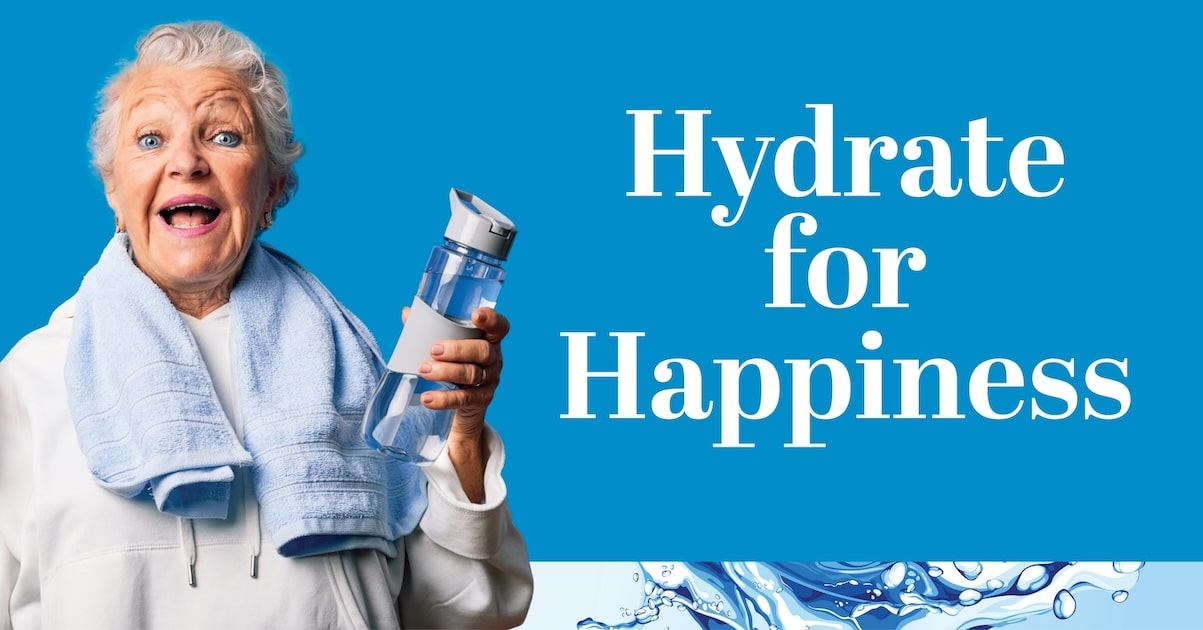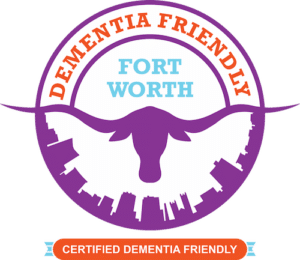As we enter the peak heat wave season, one of the most critical aspects of staying healthy is keeping cool. For seniors, this is especially important.
Staying hydrated is where senior wellness starts.

The Advantages of Continuum of Care in Senior Living
Download our free brochure and checklist to ensure the senior living community you choose offers the correct support you or a loved one needs.The Importance of Staying Hydrated in Fort Worth, TX as a Senior
Hydration for seniors is vital for maintaining overall health. Our bodies need sufficient fluid intake to function correctly. As we age, our sense of thirst diminishes, making it harder for older adults to recognize when they need to drink water. This change can lead to signs of dehydration.
During the summer months, heat can accelerate dehydration. Without enough water intake, seniors risk several adverse effects, such as:
- Fatigue and Weakness: Dehydration can cause tiredness, making daily activities challenging.
- Urinary Tract Infections (UTIs): Low fluid levels can lead to UTIs, which are common in older adults.
- Confusion and Dizziness: Lack of fluids can affect cognitive function and balance.
- Constipation: Insufficient hydration often results in digestive issues.
It’s essential to stay hydrated by drinking plain water and consuming foods with high water content.
What is Heat Stroke?
Heat stroke is a severe condition that can occur if someone becomes too hot and dehydrated. It involves a rapid rise in body temperature and can be life-threatening. Ensure older adults drink enough water throughout the day.
Unlike a regular stroke, which disrupts blood flow to the brain, causing neurological impairments, heat stroke primarily affects the body by leading to dangerously high body temperatures.
This can damage vital organs like the heart, kidneys, and muscles, potentially resulting in long-term health issues. Hydration is important in preventing overheating.
Symptoms of Heat Stroke:
- High body temperature (above 103°F)
- Rapid pulse, heartbeat, and breathing
- Headache
- Nausea or vomiting
- Confusion, dizziness or lightheadedness
- Hot, red, dry, or damp skin
- Muscle cramps
What to Do if Heat Stroke Occurs
If an older adult shows signs of heat stroke, act quickly:
- Move the person to a cooler place
- Apply cool cloths or moisture
- Offer small sips of water if they are conscious
- Contact medical professionals or head to the emergency room immediately
Why Seniors Are More Prone to Dehydration
Senior hydration is crucial for maintaining good health, yet older adults are more prone to dehydration for several reasons. As we age, our bodies undergo changes that can make it easier to fall into dehydration.
Understanding these factors can help us take proactive steps to ensure seniors stay hydrated:
- As people age, their sense of thirst diminishes. This means that older adults might not feel thirsty even when their bodies need fluids.
- Kidneys become less efficient at conserving water, leading to a higher risk of dehydration.
- Some medications can cause increased urination or reduced fluid intake, both of which can lead to dehydration.
- Conditions like diabetes, heart disease, and mobility issues can impact fluid balance and increase the risk of dehydration.
- Alzheimer’s and other forms of dementia can impact a loved one’s fluid intake.
- Limited mobility can make it difficult for seniors to access fluids regularly.
Creative Ways Older Adults Can Stay Hydrated
Keeping older adults hydrated doesn’t have to be boring or challenging. Here are some creative tips to ensure they get enough fluids:
- Set Hydration Goals: Encourage drinking a glass of water with each meal and at regular intervals throughout the day. Aim to drink small amounts frequently rather than large amounts at once.
- Keep Water Accessible: Place water bottles within easy reach to remind older adults to drink water consistently. Portable and lightweight bottles are best.
- High Water Content Foods: Incorporate fruits and vegetables with high water content into their diet. Foods like watermelon, cucumbers, oranges, and strawberries can significantly increase fluid intake.
- Monitor Fluid Intake: Track daily water consumption to ensure it meets the recommended levels for their body weight and health conditions.
- Flavorful Alternatives: If plain water isn’t appealing, offer alternatives like herbal teas, flavored water, and broths. Ensure these options still provide hydration benefits without added sugars.
- Hydration Stations: Set up multiple hydration stations around the home with water, cups, and straws. This encourages regular sipping throughout the day.
- Scheduled Drinking Times: Establish specific times during the day dedicated to drinking fluids, such as after waking up, mid-morning, with meals, and before bed.
- Educate on Signs of Dehydration: Teach older adults and caregivers to recognize the signs of dehydration, such as dark urine, dry mouth, dizziness, and confusion. Early detection helps prevent dehydration.
- Talk to Your Doctor: Medical conditions may require personalized hydration strategies. Consulting a healthcare provider ensures fluid intake recommendations are tailored to individual needs and medication side effects.
Hydration for Seniors Is Essential During The Summer
At Civitas Senior Living, we understand that hydration is vital for enhancing residents’ quality of life. Our team provides fluid-rich meals, accessible drinking stations, and continuous education on the importance of staying hydrated.
Civitas Senior Living residents are beating the heat thanks to professionally maintained apartments and occasional sweet treats.
Contact us and arrange a tour of our full services.





